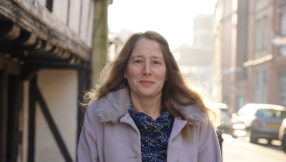
Southern Baptist leaders are calling for more racial integration in their churches as a means of addressing increased racial tensions in the country.
The denomination was formed in 1845 in support of slave owners, but contemporary leaders say that Christians of all races should worship together.
"In the church, a black Christian and a white Christian are brothers and sisters," Southern Baptist Ethics and Religious Liberty Commission leader Rev. Russell Moore wrote.
"We care what happens to the other, because when one part of the Body hurts, the whole Body hurts. ...When we know one another as brothers and sisters, we will start to stand up and speak up for one another."
Moore also organised "The Gospel and Racial Reconciliation" summit to be held this spring. Other Southern Baptist leaders said more needs to be done to increase diversity within their churches and in leadership positions.
"The church lacks the moral authority to address the world about race before we set our own house in order," Rev. Dwight McKissic, a black Southern Baptist pastor in Arlington, Texas, told the AP.
Although the denomination elected their first black president in 2012, Rev. McKissic pointed out that all other top executives and seminary presidents are white.
"It's obvious the rhetoric and reality is not matching," he said.
During the civil rights movement, Southern Baptist leaders were largely silent, or supported segregation. In recent years, the church repented for condoning racism, apologised to African-Americans, and announced efforts to attract minorities to their flock.
In 2012, 20 per cent of the church's 51,000 congregations were nonwhite, but less than one per cent were multi-ethnic. Southeastern Baptist Theological Seminary President Danny Akin lamented that the church is just working to correct over a century of institutionalised racism.
"My grief is we're late to this party," he said. "We should have been leading the way. The Christian church should be the first to speak to issues of discrimination and injustice ... not sitting back."













